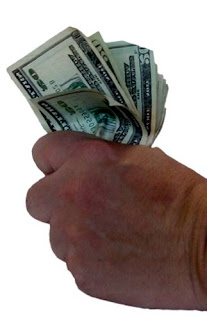 These are gleanings from newsletters, etc. I have not included all of the events, nor have I provided much detail. As usual, the disclaimer applies - check this kind of thing out yourself. I just want to give you a heads-up.
These are gleanings from newsletters, etc. I have not included all of the events, nor have I provided much detail. As usual, the disclaimer applies - check this kind of thing out yourself. I just want to give you a heads-up.
In
New York, maple syrup candy, fudge and halva (whatever that is) are taxable, even if sold out of a bakery. Sushi can be either taxable or non-taxable depending on the way it's sold. And fruit baskets are not taxable. New York Advisory Opinion TSB-A-09(54)S, 10/09/2009
Even though a child care service operates, for all intents and purposes, a private playground, their fees are still not taxable as admissions. They operate a child care service. New York Advisory Opinion TSB-A-09(53)S, 12/03/2009
New York has published a new guide for exempt organizations. New York Department of Taxation & Finance Publication 843, 12/01/2009
In
Minnesota, credits received by the seller from the manufacturer are not considered part of the sales price and gross receipts. Northern X-Ray Co. v. Commissioner of Revenue, Minn. Tax Ct., Dkt. No. 7945 R, 12/08/2009
In
Missouri, yoga sessions are taxable. So relax. Missouri Private Letter Ruling LR 5955, 11/06/2009
The Pittsburgh,
Pennsylvania parking tax is 37.5% (gasp). Remind me not to park my car there. 2010 Pittsburgh Parking Tax Bulletin, 12/15/2009
Rhode Island updated their food and beverage regulations SU 09-59, R.I. Division of Taxation, effective 01/01/2010; rentals and leases SU 09-62, R.I. Division of Taxation, effective 01/01/2010; and electronic funds transfers EFT 09-01, RI Division of Taxation, effective 01/01/2010.
Blasting in a quarry is considered part of the manufacturing process therefore explosives, detonators, etc. are considered exempt as manufacturing equipment.
Illinois Dept. of Rev. General Information Letter ST 09-0149-GIL, 11/09/2009
Freight charges in Illinois were taxable because they were not agreed to separately. Another in a series of confusing positions. Illinois Dept. of Rev. General Information Letter ST 09-0150-GIL, 11/13/2009
Ohio has released the situs rules for 2010. Basically, if it's an intrastate shipment of TPP, the sale is sourced to the location where the order is received. If the order is shipped from outside of Ohio, it's sourced to the destination. For services, it's simply where the customer receives the service. And consumers won't have to worry about additional use tax for their location if different from the seller's location. Ohio Tax Information Release ST 2009-03, 12/01/2009
Colorado is allowing online filing for sellers with only one location Colorado Department of Revenue InfoEmail, 12/18/2009
Layaway payments not subject to sales tax in
Indiana. Indiana Information Bulletin ST78, 12/01/2009
A seller doesn't have nexus in
New Mexico, even though they briefly store their inventory in the state prior to delivering it to the customer. New Mexico Taxation and Revenue Dept. Ruling 401-09-5, 12/03/2009
Campground have to charge sales tax on rentals if there is a structure involved, but if they're simply renting a plot of land on which camper will pitch a tent or park an RV, there is no sales tax.
Vermont Technical Bulletin TB-50, 12/14/2009
Local rate changes
Alabama Missouri Ohio Texas
State rate changes
Connecticut (rate didn't decrease)
The Tax Foundation has published a
review of significant state tax changes in 2009, It's mostly about rate changes and other very high level stuff, but there is a summary section near the bottom that is good reading.
SpeedTax has a
short article on the effort by California to enforce use tax reporting.
The Sales Tax Guy
http://salestaxguy.blogspot.comSee disclaimer and research the issues thoroughly before making decisions
Here's information on our upcoming
seminars and webinarsPicture note: the picture above is hosted on Flickr. If you'd like to see more, click on the picture.
 This is part of an occasional series illustrating the ways that the states manage to find out about you not paying your taxes. Not that you would do anything like that.
This is part of an occasional series illustrating the ways that the states manage to find out about you not paying your taxes. Not that you would do anything like that.







